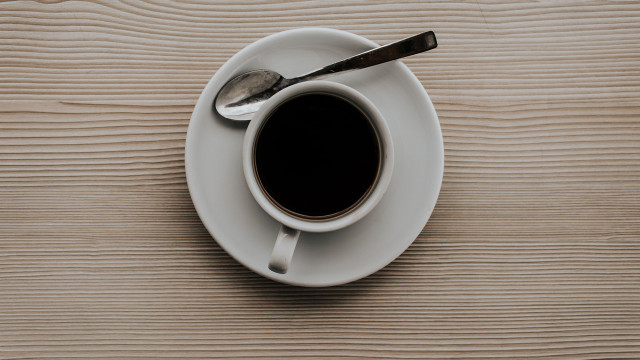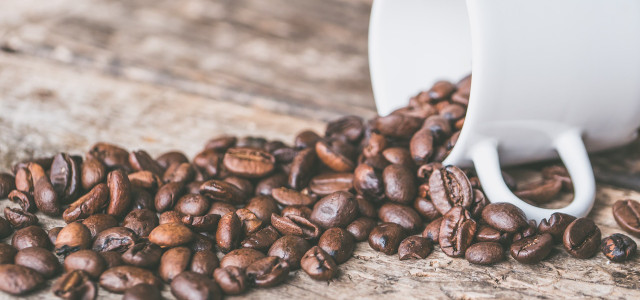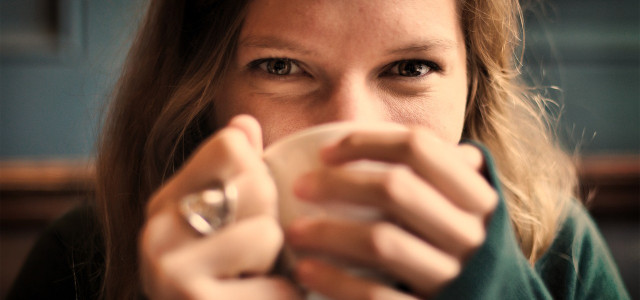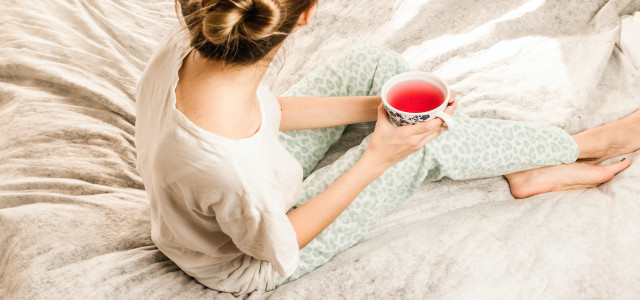Decaffeinated coffee tastes like coffee, but does not have the stimulating effects of caffeine. This makes it a good alternative for anyone who can’t tolerate caffeine or likes to drink coffee in the evening. But is it healthy — or is decaf coffee bad for you?
Coffee is one of the most popular drinks in the USA, with approximately 60 percent of Americans drinking it daily. While some drink coffee for the effect of the caffeine, others drink it purely for the taste. Decaf coffee is an ideal substitute for regular coffee if you want to avoid the stimulating effect. Apart from its caffeine content, it is no different from the regular coffee we know and love!
Did you know that decaf became popular due to a Nazi propaganda campaign? Rumor has it, German coffee roaster Ludwig Roselius invented decaf in the early 1900s because he thought his father had died from drinking too much coffee.
The Nazi party was known for being obsessed with health and fitness, so Roselius marketed his decaffeinated coffee as one that would protect the heart and nerves. The Nazi party even went as far as writing avoiding stimulants into official state policy, making decaf coffee incredibly popular.
Is Decaffeinated Coffee Bad for You? What to Consider
When comparing decaf with its caffeinated partner, it is important to know the decaffeination process used on the beans. It was decaffeination processes that use a colorless liquid chemical called methylene chloride which have given decaf coffee a bad name.
In fact, studies show exposure to even small amounts of methylene chloride can slow down the central nervous system temporarily. Some other risks involved include headaches, drowsiness, coughing and wheezing, and lightheadedness.
But how common is this process, and how do you know whether it’s been used on the coffee you’ve got in your cupboard? Let’s dive deeper into the decaffeination process to learn when decaf coffee can be bad for you.
The Different Ways Coffee Is Decaffeinated Affects Whether It Can Be Harmful to Your Health

Caffeine is a water-soluble substance, so water is used during the decaffeination process:
- Earlier water-based processes tended to remove sugars and proteins along with the caffeine, which greatly altered the flavor.
- That’s why today agents like activated charcoal, methylene chloride, CO2, or ethyl acetate are used in addition to water, as they help extract the caffeine molecules more effectively.
- The healthiest (and most natural) method of decaffeinating coffee is the Swiss Water Process which is 100 percent chemical-free. The end result is a 99.9 percent caffeine-free coffee.
Learn more details: How Does Coffee Decaffeination Work? The 3 Methods Explained
If you are worried about your caffeine intake, make sure you know how your decaf beans were processed. Most decaf coffee is not completely free of caffeine. According to the USDA, coffee only needs to be 97 percent caffeine-free in order to be labeled as decaf.
Looking for an alternative way to kick-start your day? Check out our 10 Tips for Healthy Morning Rituals.
Health Advantages of Coffee
Whether your coffee has caffeine in it or not, your daily cup of Joe may offer a few advantages. Keep in mind, adding sweeteners and cream or milk can minimize coffee’s benefits. To get the most out of your coffee, drink it black!
Coffee is loaded with antioxidants called polyphenols which are said to help treat diabetes, cardiovascular and neurodegenerative diseases, digestive issues, and aid with weight management. Studies have shown that coffee (both caffeinated and decaffeinated) may offer protection against:
- Parkinson’s Disease
- Type 2 Diabetes
- Liver Disease
- Heart Attack and Stroke
Overall, whether your decaf coffee is bad for your health depends mostly on how you consume it — and how much of it. The type of decaffeination process used can also have an effect.
Decaf vs. Regular Coffee
When comparing decaf coffee to regular coffee, what it really comes down to is whether the advantages of caffeine outweigh the disadvantages. These results vary from person to person, so you really just have to find out what works best for you.
Caffeine Pros:
- can increase energy, focus, and memory
- can help detox the liver and cleanse the colon
- increases stamina during exercise and relieves post-workout muscle pain
- reduces the risk of kidney stones
Caffeine Cons:
- can interfere with sleep
- may exaggerate the stress response and lead to increased anxiety
- can cause headaches and migraines
- may reduce women’s fertility and worsen menopause symptoms
- could raise blood pressure
- tends to give rise to acid reflux and indigestion
- can interact poorly with other medication
Is Decaffeinated Coffee Bad for You and Your Child During Pregnancy?
There are no official guidelines when it comes to drinking decaf coffee while pregnant. There are, however, guidelines regarding how much caffeine is safe to drink when pregnant.
The consumption of too much caffeine can lead to a minimal reduction in the baby’s birth weight, which may cause health issues later on in life. As a general rule of thumb, you should not drink more than 300 mg of caffeine, which is equivalent to about two 8oz cups of regular coffee or three 8oz cups of tea a day.
Since decaf coffee doesn’t contain nearly as much caffeine as regular coffee, it’s most likely safe to continue to drink decaf throughout your pregnancy. Still unsure? Contact a medical professional to be on the safe side!
If feel that even decaf coffee might not be right for you while pregnant, you can cut out the caffeine completely by choosing drinks like fruit teas, safe herbal teas, hot water with lemon, golden milk, or fruit juices.
Fair-Trade Decaf Coffee Brands
Not all (decaf) coffees are created equal! We’ve rounded up a few fair-trade coffee brands that do a great decaf.
- Taste: Kicking Horse Coffee Company‘s decaf coffee blend (available on Amazon**) has notes of roasted hazelnuts and chocolate… need we say more?
- Convenience: ONECOFFEE‘s single-serve pods are great for those who operate on single-cup machines. Not only that, these decaf pods are compostable and chemical-free.
- Choice: Allegro Coffee can be found in any WholeFoods store countrywide and they have plenty of fair trade, organic, chemical-free decaf blends.
- Traceability: Ethical Bean Organic Coffee (available on Amazon**) has a nifty little trick when it comes to their packaging: simply scan the QR code on the bag to find out where your beans came from.
This article has been adapted from German by Karen Stankiewicz. You can find the original here: Entkoffeinierter Kaffee: Wie gesund ist er wirklich?
Important Information regarding Health-related Topics.
** Links to retailers marked with ** or underlined orange are partially partner links: If you buy here, you actively support Utopia.org, because we will receive a small part of the sales proceeds. More info.Do you like this post?








